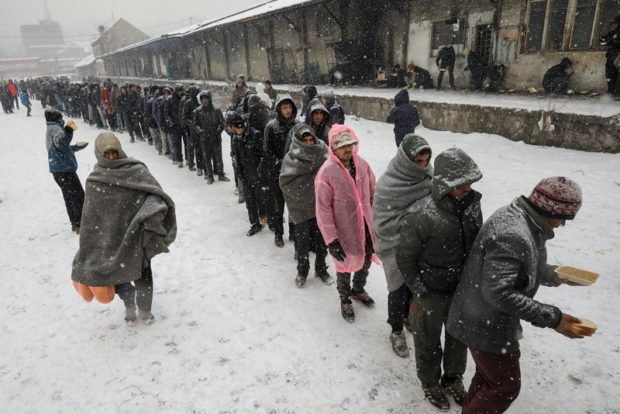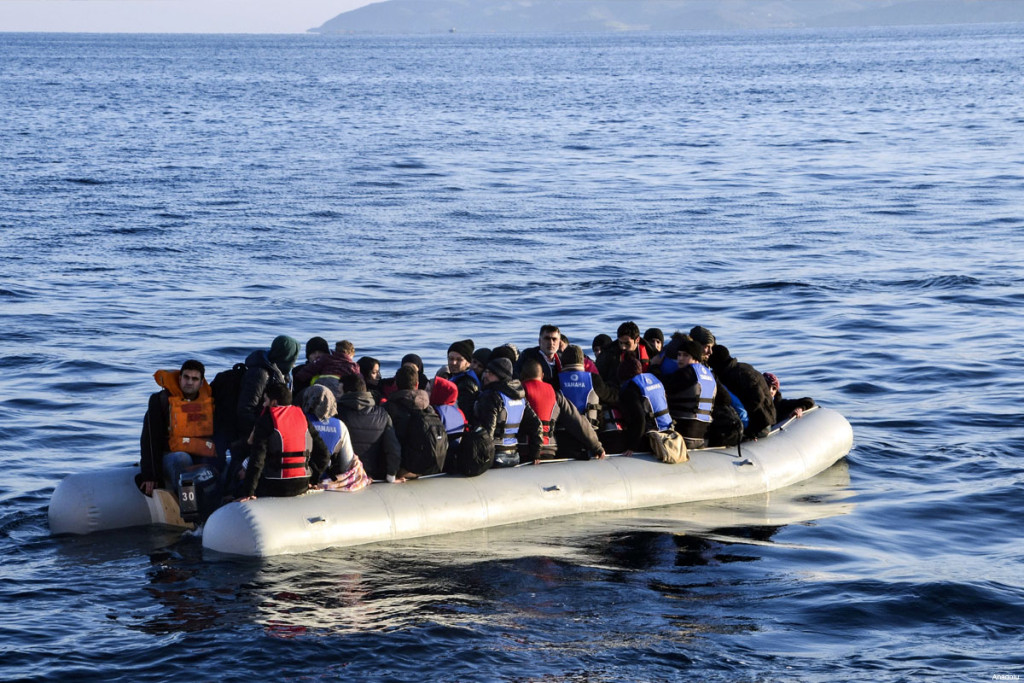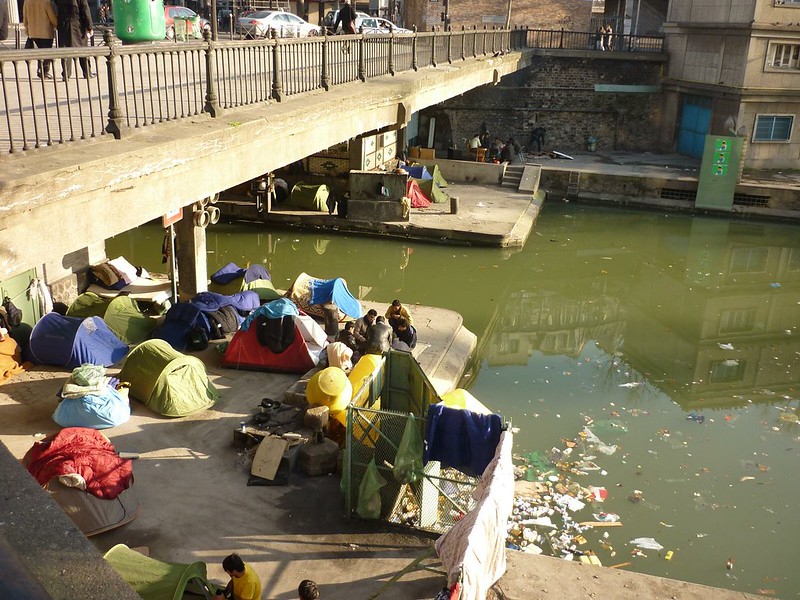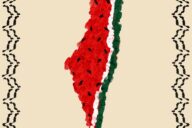Europe’s politicians and journalists have framed the ongoing refugee crisis on Europe’s borders as a violent invasion.
Tens of thousands of migrants and refugees are trying to cross into Europe after the Turkish government announced that it could no longer shoulder the burden of the refugee crisis alone and would not stand in the way of those who wanted to enter the EU.
Turkey has taken in 3.6 million Syrian refugees fleeing the Assad regime since the war in Syria began in 2011. The risk of millions more fleeing Assad’s brutality remains ever-present as his regime attempts to capture areas of Idlib currently held by the opposition. In both countering Assad’s repression and the consequent refugee crisis, Turkey has been left to its fate by EU states.
Europe has done little to help Ankara either halt the Assad offensive that is creating the refugee crisis or offer to take in the refugees themselves. Turkey has been clear in its intention that it wants to establish and maintain a safe zone in northern Syria.
Those are the fundamental facts but the framing in European media outlets presents an alternate reality. This misrepresentation of the situation takes two forms – framing the crisis as one of Turkey’s making and also the dehumanisation of the refugees themselves.
Greek security forces reportedly seen hitting refugee boats with long sticks, randomly shooting at them and manoeuvering to capsize their boats as they tried to make it to Greece.
The refugees were later reportedly saved by a Turkish guard boat. pic.twitter.com/9hjUsXsTrb
— TRT World (@trtworld) March 2, 2020
Greek media
In Greece, a person would be forgiven for thinking it was soldiers trying to cross the border and not innocent men, women, and children, fleeing war. Leading daily ‘Kathimerini’ ran a story with a headline stating that authorities were on alert to prevent an ‘invasion’. It contained a line that read: “Throughout the night the aspiring ‘invaders’ remained on the Turkish side of the border.”
As if completely unaware of the paradox, just below the description was a photo of a group of refugees including a young girl dressed in a pink jacket. What threat these people pose is left unexplained.
Elsewhere, while refugees were presented as faceless invaders, police officers gave stoic monologues about the need to protect their borders – from unarmed civilians fleeing war, including women and children.
In Greece, a person would be forgiven for thinking it was soldiers trying to cross the border and not innocent men, women, and children, fleeing war.
Tempo 24 spoke to one such officer, with a headline that read: “I want to leave for Evros now.” (Evros is the name of the region on the Greek border). In the interview, an unnamed police officer delivers a speech that could appear on a far-right election pamphlet.
“Together with my colleagues, who fight. I take a little, but I live with dignity. But the greatest dignity is to preserve the country’s border,” he says before going on to accuse Turkey of using the “tribes of the world” to invade Europe.
Of course, there is no attempt to humanise migrants and refugees and they are presented purely as a threat. The article leaves unchallenged the accusation against Turkey, failing to explain the context of what is happening in Idlib and also that the Turkish government is not forcing anyone to leave the country.
A Syrian refugee was allegedly killed by Greek security forces while trying to cross into Greece.
Thousands of refugees and migrants are waiting to cross the border after Turkey opened its side of the frontier pic.twitter.com/p2RwoQWxd1
— TRT World (@trtworld) March 2, 2020
A common portray of refugees
The misrepresentation of the situation takes two forms – framing the crisis as one of Turkey’s making and also the dehumanisation of the refugees themselves.
But the Greek media is not alone in its misrepresentation of the situation, Germany’s Deutsche Welle (DW), which was recently the subject of accusations of widespread racism and sexism, has also published questionable content.
One opinion-editorial by Bernd Riegert accused Turkey of wanting to use the refugee situation to its own advantage. The viewpoint fails to reflect some obvious realities that Ankara is facing, with absolutely zero suggestion as to how else Turkey is supposed to respond to the ongoing crisis in Idlib. The subtext appears to be that the Europeans have paid Turkey to solve a problem they (Europeans) do not want to deal with, so why aren’t they?
Its framing suggests that the crisis is entirely of Turkey’s making, it ignored the fact Europe does have diplomatic tools at its ready to force the Russians and their Syrian clients to stop the advance on Idlib. Neither is the brutal reaction by Greek police officers towards migrants, such as the use of tear gas, a cause of much coverage. The focus is purely on Turkey. Turkey has spent more than $40 billion on refugees, while Europe dithers on both forcing a solution to the Syrian crisis or provide help to those fleeing.
Source: TRT World

















No Comments